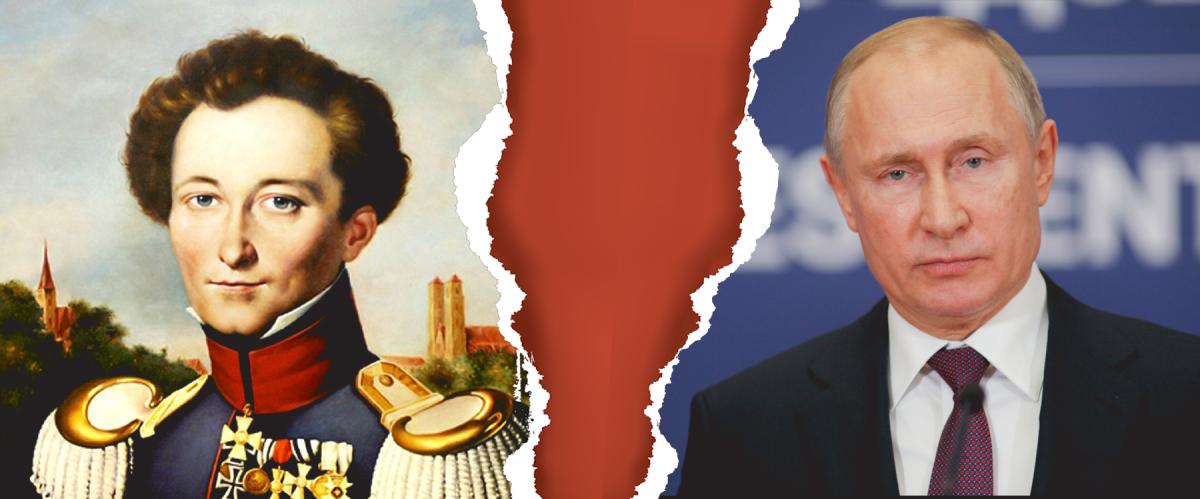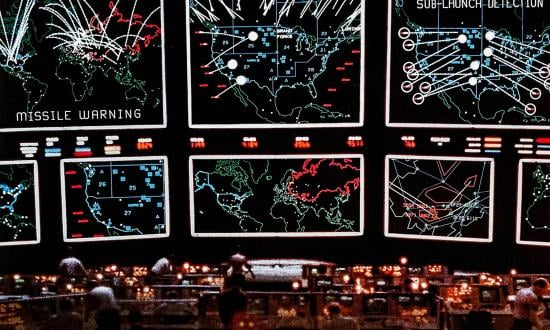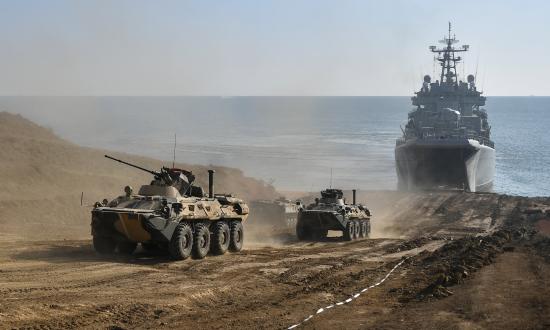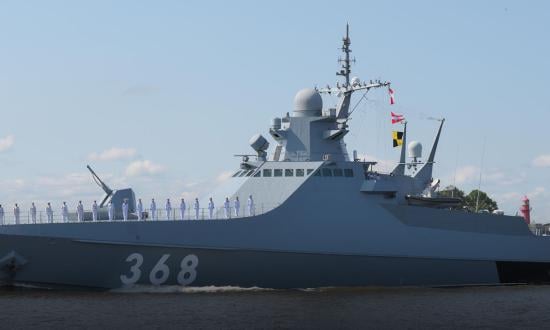WWCS? To glean wisdom on Russia’s war on Ukraine, start by asking a long-dead Prussian soldier. Namely Carl von Clausewitz, who spent a career at arms battling Revolutionary and Napoleonic France—including during a stint in the Imperial Russian army. He took up his pen after the little emperor’s overthrow, recording his insights into the dynamics of warfare in his masterwork, On War.
Were he among the quick today, Clausewitz might tender some caustic words about Moscow’s handling of the campaign in Ukraine. He would reprimand Vladimir Putin & Co. for demanding everything from Ukraine while evidently expecting little more than token resistance; for assuming the Ukrainian Army would fight Russia’s fight when it had every reason not to; for neglecting the operational rhythms of the battlefield; and for ignoring humdrum but all-important aspects of war-making, logistics in particular.
These are deadly sins in martial enterprises.
Think about it. Putin and his lieutenants sought to fabricate a pretext for the invasion, accusing Kiev of waging genocide against ethnic Russians in Ukraine’s eastern provinces. They had to make extreme claims to justify extreme measures. To halt supposed atrocities, Moscow proclaimed that it intended its onslaught to “denazify” the government in Kiev. Invoking the example of Nazi Germany was deliberate. You don’t strike diplomatic compromises with a Nazi regime; you raze it. Russia’s goal, then, was regime change. Moscow meant to destroy the Western-leaning Ukrainian government and replace it with one more to Putin’s liking.
Survival is ample incentive for Ukrainians to fight their hardest—a fact that appears to have escaped Russian battle planners. But why? Clausewitz counsels commanders and their political masters to undertake some educated guesswork about how a foe may react to their actions, and to shape operations and strategies accordingly. Military overseers, he says, must “guess whether the first shock of battle will steel the enemy’s resolve and stiffen his resistance, or whether, like a Bologna flask, it will shatter as soon as its surface is scratched.” A Bologna flask is a special type of glass bottle sometimes used in physics experiments. It is rock-hard on the outside yet exceedingly fragile on the inside. Putin and his advisers apparently expected the Ukrainian government and society to be a Bologna flask that would shatter from within at the first blow.
Instead, in Clausewitz’s words, Ukrainians have comported themselves like “a wounded bull” enraged by the “burning pain” from wounds inflicted on it by an aggressor. So, Russians failed at one of the most elementary functions of strategy-making: understanding the opponent and paying it due respect. If you demand everything from your adversary, you can bet it will put forth its utmost effort to defy and defeat you.
Be pessimistic when taking the enemy’s measure: you will either be right or pleasantly surprised.
Russian leaders also succumbed to the fallacy of “script-writing,” an idea implicit in Clausewitz’s writings. A martial script is an idée fixe, a fixed idea about cause and effect. A commander who engages in script-writing assumes the enemy will react to his or her actions precisely the way the script demands: If I do X, you will do Y, and so on till I reach my goals. It is one thing to write a script in Hollywood, where the actors do what the director says if they want their paychecks. It is quite another to assume that a foe trying to accomplish goals contrary to yours will comply with your script. In warfare, in fact, the foe has every incentive to go off-script in hopes of ruining your production. Wise commanders expect it.
Yet Russian commanders seem to have assumed the Ukrainian Army would come out and wage conventional battles in which it would be lopsidedly outmatched. The defenders refused to play the role Moscow had assigned them. Instead, they waged irregular warfare, harrying the Russian Army and denying it the quick, decisive triumph Putin coveted. Moscow forgot one of the fundamental injunctions from Clausewitz—that war involves a “collision of two living forces,” a contest in which both pugilists try to overthrow each other. Whatever the balance of forces, each contestant stands at least some chance of prevailing.
The enemy is not a potted plant, subservient to Moscow’s will. Russian war planners would have been better off assuming that Ukrainians, whom the Russian offensive had placed on death ground, would display at least as much skill, ingenuity, and, in particular, thirst to win as did Russian forces. Complacency is a strategic vice of the first order. Clausewitz would condemn the Russian leadership for falling prey to it.
Russian commanders likewise appeared oblivious to the ebb-and-flow rhythm typical of military campaigning. Clausewitz discerns a pattern in battlefield operations whereby the attacker opens a sizable military advantage in the early going by virtue of initiative, surprise, and other factors, only to see that advantage start slipping away as the campaign wears on. This is natural. Clausewitz maintains that tactical defense—not offense—constitutes the strongest form of warfare. Accordingly, the defender narrows the attacker’s advantage as the attacker penetrates deeper into hostile territory, is compelled to seize fortified positions, or, as in the case of the Ukraine war, is drawn into draining urban combat.
If the war goes on long enough and the defender plays its hand well, the invader will overshoot what Clausewitz terms the “culminating point of the attack,” the crossover point beyond which the contender formerly on the offensive is now weaker, and stranded deep within the defender’s backcountry to boot. Its logistics will be strained; it will be forced to operate close to the defender’s base areas, where the home team commands the advantage; it could be set upon by a partisan populace; and on and on. This is a danger zone.
Now, it is doubtful Russian forces will exceed their culminating point of the attack in light of the vast material mismatch separating them from the Ukrainian military. But the imbalance of forces might taper to a point in which Moscow can no longer hope to impose a favorable peace on Kiev. In fact, this may already have happened. Its assumption that Ukraine would fold after a few days of combat seems to have blinded Russia to stubborn realities such as these.
And last, judging from reporting from the field, it appears the Russian military disregarded the basic blocking and tackling of military operations. Reports are legion of Russian units’ stalling out because they are starved of fuel, ammunition, and spare parts. The fact is that no military campaign can win through to victory without lavish if unglamorous support functions. A hoary military joke holds that amateurs talk tactics while professionals talk logistics. And like all good jokes, there is truth to that one.
Clausewitz is chiefly concerned with what happens when armies are in contact on some battleground, but he is also attuned to the importance of supporting forces in the field. His ruminations about culminating points make it clear why the defender enjoys certain advantages, no matter how inferior its forces may appear on paper. The local availability of militarily relevant resources, short lines of communication between base areas and the fighting front, and manifold other homefield advantages bolster the defender’s prospects.
Tactical and operational excellence is important—but no force can excel without fuel and stores.
In short, Carl von Clausewitz would probably reproach Russian commanders for mishandling the Ukraine campaign. May they never learn.







